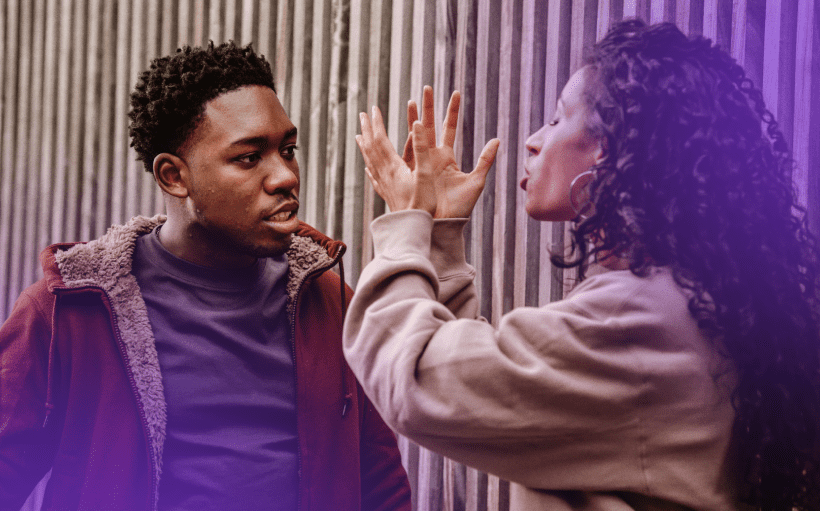I’ve always been inspired by women who are outgoing, very sure of themselves, and not afraid to be who they were, including their sex lives. Under their tutelage, I gradually shed my old self, hung out and socialized with them, and, over time, became the empowered, self-confident, and sexual woman I am today. Happy to share my insights with other women today!
What Is Monogamy Today?
What does the monogamous relationship mean? If you ask ancient Greeks, they would tell you it’s a single marriage – since ‘mono’ means ‘one’ or ‘single,’ while ‘gamous’ means ‘marriage’ in their language. But we’re living in the 21st century, and the definition of monogamy has significantly changed since then:
- Monogamy no longer means “for life,” considering the divorce rate monogamous couples have today.
- A monogamous relationship can be two people agreeing to be exclusive outside a marriage.
- Monogamy does not refer only to two people in a monogamous relationship. There is a wealth of relatively non-monogamous relationships and gender equality balances that we see today that still maintain monogamy.
- For people in Mormon sects, monogamy means that one man is married for life with several wives.
Now there are even throuples – three people in a committed monogamous relationship exclusive to the three of them.
But don’t get us wrong: this is not to say that we still live in a world where monogamy – one sexual and romantic partner in a marriage – is no longer the norm. For the Western culture, it’s still the case. But as newer generations develop their ideas of sexual and romantic relationships, these conservative, certainly religious-based, ideas of monogamous relationships are giving way to newer concepts. And committed relationships are taking on all sorts of “flavors.” Let’s take a look at the whole wealth of meaning monogamy carries.

Hily is a dating app with over 26 million users. Install Hily today and establish meaningful connections with interesting people worldwide. Find love or friendship – you can get anything you’re looking for!
Traditional Monogamy: Is It Still There?
So, let’s start by defining whether monogamy, in the sense of a traditional relationship between two legally married people, still exists in our society.
Indeed, when it comes to traditional monogamous relationships today, they mostly involve marriage. However, the marriage institute is currently in crisis. In the past 50 years, marriage between eligible couples has declined by an astounding 60%. Here are additional insights from the recent survey on marriage popularity:
- 25% of Americans believe marriage is outdated. Add to this “socially problematic” marriage concepts for traditional religious groups, like marriage among gay couples.
- 32% of single Americans state they do not want to get married. The increasing equality between the sexes has empowered women to enter into a non-monogamous relationship without any thought to monogamous marriage.
- 27% of respondents stated they supported polyamory and/or polygamy. This directly conflicts with many religions and points to the increasing secularism in America. However, while many singles state that they tend to have only one partner at a time, they do not necessarily consider that person a life partner.
- Many singles enter a monogamous relationship because pooling finances gives them more security. But they do not necessarily pool their resources.
While a monogamous relationship is still popular, marriage is declining. The new generation of young people doesn’t see marriage as their key goal. Frequently, they are proponents of “relationship anarchy” – the concept that people should pursue their wants and needs in relationships, rather than follow societal norms.
All in all, younger people still want a healthy relationship with a romantic partner, they also accept that they may have many more than one sexual partner in their lifetimes.

3 Types Non-Monogamous Relationships
There is a growing acceptance of non-monogamy as a relationship structure where someone may have multiple partners (thus multiple relationships) at the same time. These polyamorous relationships can take various forms, including consensual and nonconsensual nonmonogamous and polyamorous relationships.
1. Consensually Nonmonogamous Relationships
“What we do is serial monogamy, where we date one person exclusively, break up, then date another person exclusively.”
Dr. Jenni Skyler, sex therapist and relationship expert
Consensual nonmonogamy is also known as ethical non-monogamy. In this version of polyamory, multiple partners are in a relationship structure. They know about one another or at least are OK with the existence of all other people there.
Ethical non-monogamy is common in various cultures worldwide and is an increasingly accepted practice in the U.S. This type of arrangement is often called an open relationship or an open marriage if the two primary partners are legally married. Nonmonogamous couples usually establish guidelines and boundaries for their open relationship, including clear communication, and all partners are on the same page. The one drawback? If a jealous person is in this open situation, there will be problems.
Related reading: Rules of Open Relationships
2. Nonconsensual Nonmonogamous Relationships
Nonconsensual polyamory is anything but ethical nonmonogamy. While ethical non-monogamy involves the knowledge of all involved, nonconsensual nonmonogamy means that a person is cheating on a primary partner without their knowledge.
In other words, they are in a primary relationship with one person but have one or multiple romantic relationships on the side – and those relationships are secretive. That’s why engaging in this type of non-monogamy is not only unethical. Being romantically and sexually active with more than one person, indeed multiple people, on the sly is very risky.
Related reading: Need to Catch a Cheater? Here Are the Ways to Do It!
Polyamorous Relationships That Are Culturally Based
As mentioned earlier, non-monogamy is common in many other cultures, and some is certainly religiously based, if not culturally. Usually, these situations involve a man having more than one wife, and in these cultures, women do not enjoy the equality and independence they do in Western cultures. And in some ways, we could even consider this a type of monogamy – since marriages are for life, and the females at least have an exclusive relationship with their husbands.
So, now that we have discussed what a monogamous relationship is not, let’s talk about what it is and why people choose a monogamous relationship.
Related reading: Throuple Dating? Make It Work!

What Is Monogamy in Our New Age: Signs of a Committed Relationship
Even though there are signs that monogamy in terms of marriage is declining, practicing monogamy is still alive and well. Today, the definition of a monogamous relationship has narrowed to having one partner at a time – even if you have a relationship with multiple people throughout your lifetime. In other words, you choose to be in a committed relationship with just one person, which involves romantic, sexual, and emotional exclusivity. Let’s unpack this defintion in more detail.
First, a Bit of Science
An article in the Scientific American has summarized a research study conducted by a team at the University of Texas. specifically, they studied five that have had
The team isolated 42 common genes among all species that caused them to choose monogamy over not monogamy. Further research will probably expand to humans, but suffice it to say that certain species are prone to seek just one partner for life. Other research summaries on this topic in Scientific American might be worth the read.
Why Do People Choose to Be Monogamous Couples?
“We are social creatures, and most of our ideas are imprinted from the cultures, families, and relationships we grew up with…the tricky part about monogamy is that we live in a very heteronormative monogamous culture, where every long song and every movie sends the message that we all have one true love.”
Jayda Shuavarnnasri, sexuality relationship expert
Monogamy remains a desirable romantic and sexual goal for many people. This choice seems natural, considering the research results after studying five species of vertebrates who have chosen monogamous relationships over the centuries. Also, lots of contemporary media present more than just the conventional idea of what intimate connections in a relationship look like (have you watched “House of Cards?”). And they are anything but monogamous.
Here are some reasons why monogamy is still up-to-date:
- They like the simplicity of having only one person with whom they must develop and nurture a relationship from the early stages.
- They want to focus on one person rather than try to connect with multiple romantic partners
- They like stability, and monogamy offers that
- Having only one partner feels emotionally comfortable
- Monogamy is a key component of their religion or culture
- They may struggle to make emotional connections in general – when they establish a connected relationship with a partner, they are fulfilled and would never jeopardize that
- They don’t have to divide their time between or among partners, something that can become a balancing act of sorts
- They have fewer health concerns, especially STIs from sexual activity with multiple partners
Related reading: A Guide to Growing an Exclusive Relationship
Is Monogamy a Fit For You?
If you can relate to the list above, then you may be part of the demographic of monogamous people who will be in singular relationships, probably throughout their whole lives. This type of relationship feels right for them.
On the other hand, if you are a single person with these traits, you will not need a relationship expert to tell you that monogamy is not for you.
- You enjoy experiencing sex with different partners, even though you may have a primary partner
- You are genuinely attracted to others, even though in a supposed monogamous relationship
- You feel a bit confined or even trapped when in a monogamous relationship, and you have cheated when in those relationships
- You don’t think one partner can fill all of your needs, either in sex or mental/emotional connections
- You have and still do handle multiple relationships well – polyamory is comfortable
- the thought of settling down with a single partner for the long haul doesn’t appeal to you, at least not right now.
- You are in a monogamous relationship, but your other relationship (or relationships) has become equally as important. (Note: if your primary partner is unaware, you must have those hard conversations with them – that’s only fair. The talk may lead to a breakup, so be prepared).
In the End…
Monogamy is an umbrella term meaning any type of relationship – physical, sexual, and/or emotional – with only two partners. Likewise, polyamory is an umbrella term that applies to various relationships involving more than two people, even if one partner is a primary.
Both monogamy and polyamory have existed for centuries, but not in the Western world. But, given the evolution of thinking about monogamy and polyamory today, both relationship types freely exist in America and are accepted by younger demographics.
The choice between monogamy and polyamory is not just about sex, and monogamous people often have multiple sexual experiences. Many people feel they cannot have the full range of desired intimate connections with just one person. They may have amazing sex with one partner, intellectual intimacy with another, and emotional and romantic connections with still another.
So, in terms of society as a whole, we probably need to stop thinking about monogamous or polyamorous relationships only in terms of sex.
Relationships are complicated. Ultimately, each person must decide what type of relationships they want along their life’s journey. Those wants and needs may change, and that’s okay. We are moving into an era of relationship flexibility – a freedom many have not enjoyed.








